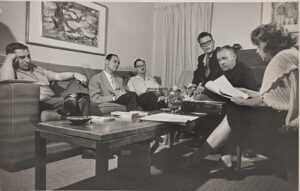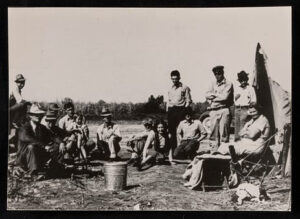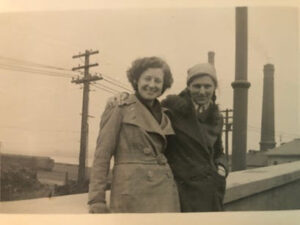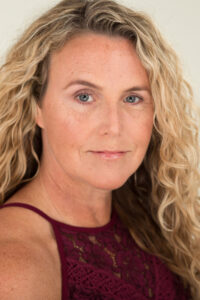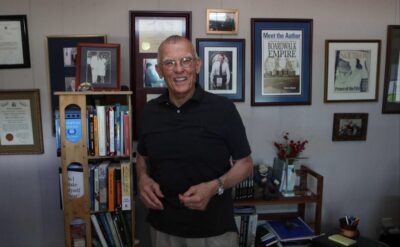Iris Jamahl Dunkle: Riding Like the Wind: The Life of Sanora Babb
March 3, 2025 by David
Filed under Fiction, Non-Fiction, WritersCast
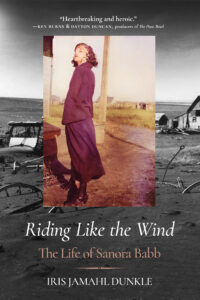 Riding Like the Wind: The Life of Sanora Babb — Iris Jamahl Dunkle — University of California Press — Hardcover — 9780520395442 — 416 pages — $27.95 — October 15, 2024 — ebook versions available at lower prices.
Riding Like the Wind: The Life of Sanora Babb — Iris Jamahl Dunkle — University of California Press — Hardcover — 9780520395442 — 416 pages — $27.95 — October 15, 2024 — ebook versions available at lower prices.Podcast: Play in new window | Download
Nelson Johnson: Darrow’s Nightmare-The Forgotten Story of America’s Most Famous Trial Lawyer
July 12, 2021 by David
Filed under Non-Fiction, WritersCast
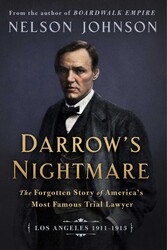 Darrow’s Nightmare: The Forgotten Story of America’s Most Famous Trial Lawyer (Los Angeles 1911–1913) – Nelson Johnson – 9781948122733 – 360 pages – April 20, 2021 – Hardcover – Rosetta Books – ebook editions available at lower prices
Darrow’s Nightmare: The Forgotten Story of America’s Most Famous Trial Lawyer (Los Angeles 1911–1913) – Nelson Johnson – 9781948122733 – 360 pages – April 20, 2021 – Hardcover – Rosetta Books – ebook editions available at lower prices
One of the great personal joys that working in the book business enables is that I get to work with authors. I’ve done some consulting with Rosetta Books, the publisher of Darrow’s Nightmare, and through the publisher have had the opportunity to meet and get to know former New Jersey judge Nelson Johnson, who turns out to be a terrific person, as well as a wonderful storyteller, historian, and writer.
I had known of Nelson Johnson mainly because his earlier best-selling book, Boardwalk Empire, became the basis of the excellent HBO series of the same name. Boardwalk Empire documents the tumultuous story of the Atlantic City in the early twentieth century, a time when racketeers and corrupt politicians ran the city. Boardwalk Empire is a terrific book with incredibly interesting characters and clearly, Nelson Johnson knows how to write history that conveys characters and their stories dramatically for readers.
In Darrow’s Nightmare, Nelson turns his attention to Clarence Darrow, one of the greatest trial attorneys in modern American history, in one of the most tumultuous and challenging episodes of his long career. Best known today for his role in the famous Scopes trial of 1925 (and the film, Inherit the Wind), Darrow was actually most famous in his earlier years as a brilliant defender of labor rights, at a time when organized labor was literally battling with business owners across the country for basic freedoms and policies we take for granted today.
In 1911, Darrow went to Los Angeles with his wife, Ruby, at the behest of union leaders there. He was to defend two union iron workers who had been charged with the murder of twenty employees of the Los Angeles Times, whose building had been bombed as part of a major labor dispute.
After he negotiated a plea bargain for the iron workers (with the help of Lincoln Steffens), Darrow himself was indicted for attempted bribery of a juror in the trial. Darrow was fortunate to be represented by the brilliant (though flawed) California criminal attorney Earl Rogers, who was himself one of the most successful trial attorneys in American history and with the help of Rogers and friendly juries, Darrow was able to escape being convicted in two different trials. He returned to Chicago in disgrace, set himself to rebuilding his career, and went on to take on some of what are now the most famous trials of his era, including the Leopold and Loeb case and the important civil rights Sweet case in Detroit, where he defended the right of a black family to self-defense. Looking over the arc of Darrow’s long legal career, the LA trials of 1911-1913 form the most crucial episode of his life.
These trials made national news at the time, but have been mostly lost to history now. Nelson has brought the entire scene to life in memorable prose. He may be one of the few who have read the entire 8,500 page trial transcript. It is quite a story and well worth reading. And Nelson tells the story behind the story in the podcast episode presented here, which I very much enjoyed recording.
Darrow captured the imagination of many Americans in his time in history. I think that reading Darrow’s Nightmare, you might be captured as well, and see him as a flawed hero, a human being much more complex than any film could portray.
“The marks of battle are all over his face” —H.L. Mencken
“A fascinating portrait of Clarence Darrow as we’ve never seen him before—as a criminal defendant. In Darrow’s Nightmare, Nelson Johnson tells the riveting tale of America’s most famous lawyer as he fights for his life, marriage, career, and reputation. I couldn’t put it down.” —Terence Winter, Creator & Executive Producer, Boardwalk Empire
Nelson C. Johnson practiced law for 31 years prior to being appointed to the New Jersey Superior Court. During his final five years on the bench, he was one of three judges in New Jersey assigned to litigation, involving product liability claims. In the early 1980s Nelson represented the Atlantic City Planning Board when the modern casino period was beginning. That experience motivated him to write Boardwalk Empire. He has written two other books about New Jersey history. During the past 15 years, Nelson has made more than 200 presentations on his books before a wide range of audiences.
He lives in Hammonton, New Jersey.
Buy the book here from Bookshop.org. Visit the author’s website here.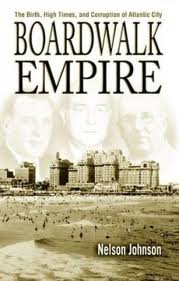
Podcast: Play in new window | Download
Brook Simons: Nothing to Write Home About
December 16, 2019 by David
Filed under Non-Fiction, WritersCast
 Nothing to Write Home About – Brook Simons – 9781626468702 – Booklocker – paperback – 232 pages – $16.95 – April 15, 2014 – ebook available at lower prices
Nothing to Write Home About – Brook Simons – 9781626468702 – Booklocker – paperback – 232 pages – $16.95 – April 15, 2014 – ebook available at lower prices
In her late twenties, in 1977, Brook Simons picked up stakes and moved to Los Angeles from Connecticut, where she grew up on a farm in a small town, which happens to be right next door to where I grew up. While Brook and I did not know each other in Connecticut, she ended up marrying an old friend of mine from Yale, who also moved to LA to start a new life just after Brook did. So while we have never met, I felt a connection to this book from the outset.
Brook’s memoir is one of the bravest and rawest pieces of personal nonfiction I have ever read. I think the word insouciant fits who Brook was during the time of this story, which coincides with the rise of the drug fueled stand up comedians who gathered in Los Angeles around the Comedy Club and television studios of Hollywood in an anxiety and angst ridden explosion of personal exposure. Not all of the funny stuff was really funny, and the mostly male community of comics was pretty solidly male-centered and frankly not only self loathing and self degrading, but extremely misogynistic.
In some ways, brash young Brook fit in with this crew, as her story shows us so evocatively and painfully. She loved the energy, the drugs, and the comedy, but she also became attached to one of the comedians with whom she developed a highly dysfunctional and brutal relationship that ultimately led her to the brink of disaster on many levels.
There really is a lot to write home about here, and Brook writes it well. I don’t want to give away the story in any form. I think you should listen to our conversation and then read the book to understand the story Brook is telling on herself toward showing how danger and power can seduce us, take us beyond the places that are safe, and sometimes cause damage that goes far beyond what anyone should be able to experience. It’s a story that antedates #MeToo, but which ought to be required reading for every woman and man who cares about changing the power relationships between male and female in a positive way.
I was really stunned by this book and hope you will find this interview of interest, along with the book itself. You can buy it from my friends at RJ Julia Booksellers in Madison, Connecticut. Support independent bookselling and order Nothing to Write Home About here.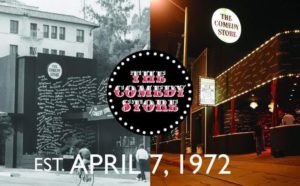
Podcast: Play in new window | Download
David Wilk interviews poet and publisher Bill Mohr
March 24, 2017 by David
Filed under Publishing History, PublishingTalks
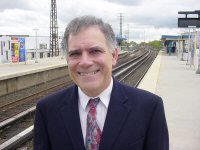 Publishing Talks began as a series of conversations with book industry professionals and others involved in media and technology about the future of publishing, books, and culture. As we continue to experience disruption and change in all media businesses, I’ve been talking with some of the people involved in our industry about how publishing might evolve as our culture is affected by technology and the larger context of civilization and economics.
Publishing Talks began as a series of conversations with book industry professionals and others involved in media and technology about the future of publishing, books, and culture. As we continue to experience disruption and change in all media businesses, I’ve been talking with some of the people involved in our industry about how publishing might evolve as our culture is affected by technology and the larger context of civilization and economics.
I’ve now expanded the series to include conversations that go beyond the future of publishing. I’ve talked with editors and publishers who have been innovators and leaders in independent publishing in the past and into the present, and will continue to explore the ebb and flow of writing, books, and publishing in all sorts of forms and formats, as change continues to be the one constant we can count on.
For the past several years, I’ve been talking to editors and publishers of independent presses about their work, including a number of important literary publishers.
Many years ago, I was introduced to the amazing poetry and writing scene in the Los Angeles area, centered in Venice Beach with the Beyond Baroque Literary Center (which was founded by poet George Drury Smith in 1968) through an old family friend, Alexandra Garrett. Surprisingly to many, Los Angeles has an amazing literary history – there’s much more there than just tinseltown. And of course Charles Bukowski and John Fante lived and worked there, John Martin’s Black Sparrow Press was born in LA, and there have been and now are thriving poetry scenes in various locales throughout the urb over the years. Doug Messerli’s Sun & Moon Press is another notable LA publisher we’ve spoken with.
There were several terrific bookstores in LA in those years, and quite a few great literary magazines and small presses over the years. One of the central individuals in the LA poetry movement of the seventies, eighties and nineties is Bill Mohr, whose magazine and press, Momentum, was a focal point for many writers in and around Los Angeles. Bill and I were friendly in those years but since lost touch, so it was a pleasure to get a chance to talk to him about Momentum for this series of interviews about the independent presses and magazines of the last half century.
Bill was born in Norfolk, Virginia, and grew up there, then moved to Los Angeles to do some acting with various small theater companies, including the Burbage Theater Ensemble. He published and edited Momentum magazine for five years, and then founded Momentum Press in the early 1980s. Between 1975 and 1988, Momentum published about 25 books including Leland Hickman’s Great Slave Lake Suite, which was one of five finalists for the Los Angeles Times book prize in 1980.
Bill also edited two important LA-focused anthologies, The Streets Inside (1978) and Poetry Loves Poetry (1985). During much of this time Bill worked as a blueprint machine operator and a typesetter, and later went to graduate school to start a new career as a scholar and professor. Mohr has been a visiting scholar at the Getty Research Institute in Los Angeles, as well as an Andrew W. Mellon Fellow at the Huntington Library in San Marino, CA. A chapter from his work-in-progress on West Coast poetry during the Cold War was included in The Sons and Daughters of Los: Culture and Community in L.A. (Temple University Press). For over 25 years he has taught creative writing in medium and minimum security prisons in Chino and the University of California, San Diego, and Idyllwild Arts, in Idyllwild, CA.
Bill is now a professor in the Department of English at California State University, Long Beach. He has a Ph.D. in Literature from the University of California, San Diego, and has taught at CSU Long Beach since 2006. His poems, prose poems and creative prose have appeared in dozens of magazines in the past 40 years, including 5 AM, Antioch Review, Beyond Baroque, Blue Collar Review, Blue Mesa Review, Caliban (On-line), Miramar, ONTHEBUS, OR, Santa Monica Review, Skidrow Penthouse, Solo Nolo, Sonora Review, Spot, Upstreet, Wormwood Review, and ZYZZYVA. His volumes of poetry include Hidden Proofs (1982); Penetralia (1984); Bittersweet Kaleidoscope (2006); and a bilingual volume published in Mexico, Pruebas Ocultas (Bonobos Editores, 2015). A CD and cassette release of spoken word was produced by Harvey Robert Kubernik and released by New Alliance Records in 1993.
This conversation was great fun for me, and I hope will be an important addition to the oral history of independent publishing over the last decades.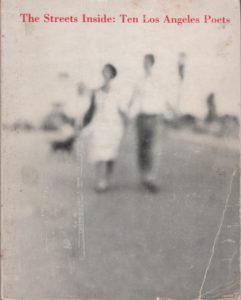
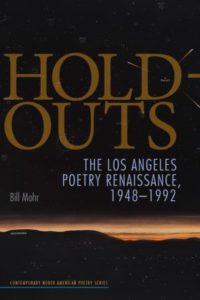
Podcast: Play in new window | Download
Lorna Landvik: Best to Laugh
August 3, 2015 by David
Filed under Fiction, WritersCast
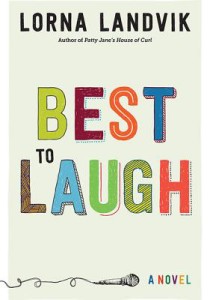 978-0-816698-97-4 – University of Minnesota Press – Paperback- 312 pages – $16.95 (ebook editions available at lower prices)
978-0-816698-97-4 – University of Minnesota Press – Paperback- 312 pages – $16.95 (ebook editions available at lower prices)
I have been reading and enjoying Lorna Landvik’s wonderfully funny books for a long time. I can’t remember how I discovered her writing but am guessing it might be the fact that she is from Minnesota that got me to try out one of her early books. And then since her books so perfectly capture the Minnesota social landscape and ethos, I kept going and read most of her novels. I come by my Minnesota interest because part of my family is from Minnesota, and I lived in St. Paul for a few years in the seventies, and I maintain a strong interest in the North Country and especially its literary life (oh and their baseball team too — see my recent interview with former Minnesota Twin Jim Kaat).
I suspect Landvik gets typecast by many readers as a “women’s” writer – her books are rich with female characters and speak to and for women’s social ethos. And in a book business that lives and dies by book categorization, maybe she is typecast also because her books are funny, and have titles that sound like they come from a female centric universe (Angry Housewives Eating Bon Bons, Your Oasis on Flame Lake, Patty Jane’s House of Curl). But it’s a mistake for any reader to overlook Landvik as there is a lot going on in these books. Landvik is certainly entertaining – her background as a stand up comedian and actor informs her writing and her stories. But comedians and comedic novelists are usually mining something deeper, and Landvik’s humor leverages a clear understanding of human nature and both our fallibility and the strength that allows us to live through pain and grief and the difficulties of daily life.
Best to Laugh is Landvik’s most recent novel, published last year by the adventurous University of Minnesota Press. It’s her most autobiographical novel, for sure. Her main character in this book, Candy Pekkala is half Korean and half Norwegian (unlike Landvik). She goes to Hollywood to follow her dream to be a stand up comedian (as Landvik did). The book follows her adventures in La-La land as she falls in with her neighbors in Peyton Hall, a class LA building that houses a cast of interesting and compelling characters, who all become Candy’s family as she becomes the success she has aimed to become. The combination of “old Hollywood” and less romantic 70’s era Los Angeles makes for a terrific backdrop. And the characters are picture perfect. Candy, her friends and family are impossible to resist.
In real life, Landvik did work as a stand up comedian in Los Angeles, temping at places like Atlantic Records and the Playboy Mansion (writing film reviews for Hugh Hefner’s private VHS tape collection) while pursuing her showbiz dream. Despite her success as a comedian, Landvik eventually turned to writing, which she turned out to be pretty good at doing. She still likes to perform – her ‘Party in the Rec Room’ is performed once a year at the wonderful Bryant Lake Bowl theater in Minneapolis (yes, theater in a bowling alley!) This is an all-improvised show based on audience suggestion. Landvik describes it this way “While I enjoy a meaty, dramatic role, to me there’s nothing more satisfying than making a roomful of people snort beer up their noses as they laugh.”
You might find yourself doing the same while reading Best to Laugh.
Author website here. Author page, on Goodreads, worth a visit.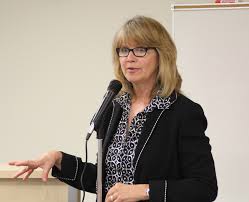
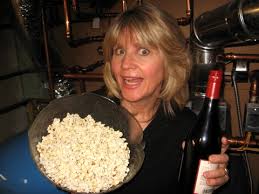
Podcast: Play in new window | Download
Francesca Lia Block: The Elementals
November 12, 2012 by David
Filed under Fiction, WritersCast
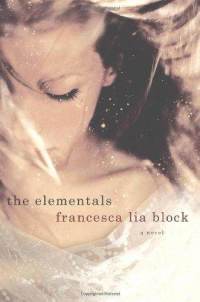 978-1250005496 – St. Martin’s Press – Hardcover – $24.99 (ebook versions available at $11.99)
978-1250005496 – St. Martin’s Press – Hardcover – $24.99 (ebook versions available at $11.99)
Francesca Lia Block has been one of my favorite writers for many years. I first discovered her through an early novel called Girl Goddess #9, and her outstanding series of novels under The Weetzie Bat rubric. She’s best known and identified as an author of YA or Young Adult books for girls and young women, but I’ve always thought that was a reductionist labeling that, as with other excellent writers, unfairly tends to limit her readership. Francesca is certainly not limited in her imaginative powers and writing ability, and her work can and should be read by adults who appreciate great storytelling and imaginative, edgy fiction. And if you love Los Angeles, as I do, there is no one better at capturing its modern day heart and soul.
The Elementals is a haunting and powerful novel about a young girl, Ariel Silverman, who is obsessed by the murder of her best friend, Jeni. She goes to Berkeley for college, the same place where Jeni was killed the summer before. While Ariel tries to live the life of a college freshman, she cannot set aside the mystery behind Jeni’s death, and spends much of her time trying to understand what really happened to her friend. She comes into contact with a number of strange and interesting characters. And meanwhile, her mother is wrestling with breast cancer, and Ariel feels like she no longer can rely on her for support. And maybe needs to find her own path anyway.
The book is both myth and mystery, rich in realistic detail and simultaneously an almost fairy tale like storytelling. This is one of my favorite novels of the year.
Francesca grew up and still lives in Los Angeles. She has written novels, short stories, screenplays, and teaches writing. She recently edited an anthology of her students’ fiction called Love Magick, which I am pleased to have published. Visit Francesca’s website for more about her many books.
In our lively and interesting conversation about The Elementals, we were very careful not to give away any of the critical story line of the novel that would spoil it for readers. Enjoy….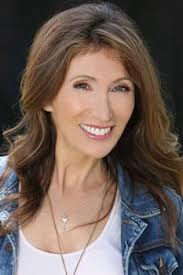
Podcast: Play in new window | Download
Brando Skyhorse: The Madonnas of Echo Park
April 24, 2011 by David
Filed under Fiction, WritersCast
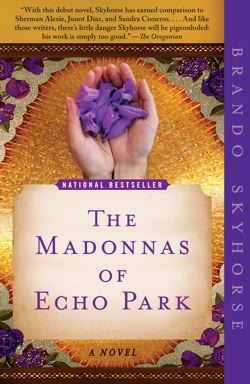 978-1439170847 – Free Press – Paperback – $14.00 (ebook versions also available)
978-1439170847 – Free Press – Paperback – $14.00 (ebook versions also available)
Brando Skyhorse’s spectacular debut is a novel created from a series of interlocking stories, all of which take place in the mostly Mexican Echo Park neighborhood of East Los Angeles. Like the rest of Southern California, Echo Park is in a constant state of flux, being invented and reinvented constantly as new populations arrive and are absorbed into the diverse culture of the city.
The opening line of the book sets the stage: “We slipped into this country like thieves, onto the land that once was ours.”
Each of the stories here focuses on the story of one character, and as the stories unfold, we realize that all of the characters we are meeting are entwined with each others lives, and particularly with the central tragedy that gives the book its name, the shooting of a three year old girl during a weekly afternoon Madonna dance party hosted by a group of local moms and their young daughters.
It took me some effort to keep track of all the characters and how they are related (it probably would have helped to have had a family tree), but all of them are so brilliantly written, I ended up caring about them enough not to worry too much about the details of their relationships. Every one of the characters in this novel experiences pain and loss and redemption. Each is in one way or another transcendent. Brando’s love for all of them, and for the community they live in and which lives in them, is palpable.
It’s no accident that this book has so much to say about identity, and how individuals make their own, both because of and in opposition to their surroundings. The author, Brando Skyhorse, grew up with five different stepfathers. He grew up most of his life believing he was Native American and only learned he was Mexican as an adult. Born and raised in Echo Park, Brando graduated from Stanford University and from the MFA Writers’ Workshop program at the University of California, Irvine. For ten years, and until recently, he worked as an editor in New York publishing.
In our conversation, we covered a wide number of issues, the background and basis for this novel, how it evolved over the years he wrote it, and much about the characters and locale of the book. We talked about identity, and what it means for fiction, for this author.
I really liked this book and recommend it highly to anyone who who likes modern fiction. And I am not alone – in March, 2011, Brando received the 2011 PEN/Hemingway Award for a distinguished first book of fiction. I’m looking forward to reading many more of his books.
 Visit the author’s website for more information, appearance schedule, etc.
Visit the author’s website for more information, appearance schedule, etc.
Podcast: Play in new window | Download

